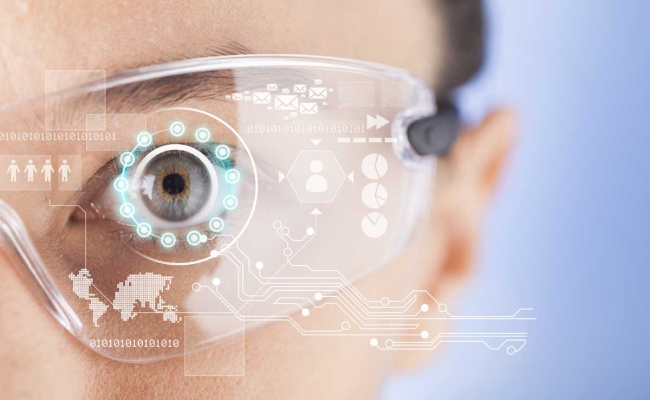
Hearing loss affects roughly 430 million people globally1. The anguish someone feels from not being able to hear well has proven to have a startling effect on their mental health. Losing your sense of sound is difficult to adjust to, and many people feel more distanced or anxious as they no longer feel like they can contribute to conversations in social settings.
Hearing aids were developed to help facilitate sound, but they may also help improve some of the mental health suffering that comes with hearing loss. This blog will address the connection between hearing loss and anxiety, and other potential mental health issues that develop. It will detail how hearing aids can help provide users relief and look at real-world examples of hearing aids and the outcomes of adopting them.
How Hearing Aids Offers Relief
Like wearables and fitness tracking, hearing aids do more than just the basics to improve patients’ health. Hearing aids work by amplifying sound through a unique three-part system. They help improve hearing and speech comprehension of people who struggle with disabled hearing. With a microphone, amplifier, and receiver, hearing aids can assist with hearing loss caused by disease, aging, traumatic events, viral infections, and more.
While the obvious benefit of hearing aids is to help give patients the ability to hear more clearly, it can also enhance their overall well-being by making patients feel more connected to the world and how they think about themselves.
Better Relationships
Hearing loss comes with a higher risk of loneliness and social isolation, most likely due to the difficulty in understanding speech or frustration with the inability to communicate2. Hearing aids offer amplified sound so patients can hear and communicate with friends and loved ones. Overall, quality of life can improve, and patients might not feel as disconnected from others when they are able to communicate effectively.
Improved Confidence
Along with healthier relationships, hearing aids can improve confidence in communication and speech recognition. It might feel easier to accept social invitations or socialize in noisy environments. Individuals with hearing aids can experience improved confidence by appropriately communicating with the world around them.
Better Cognitive Health
Hearing loss is sometimes linked to mental and cognitive decline, so treating hearing loss through supportive hearing aids might help address that potentially harmful effect3. The reason for a potential cognitive decline could be that there is less brain stimulation and an increase in the brain working overtime to try and hear. By engaging in conversations, the person with hearing loss can keep their mind sharp and prevent this degradation.

Real-world Applications
Commercial hearing aids have been around since the turn of the 20th century. Still, innovation powered by the Internet of Things (IoT) and artificial intelligence (AI) offers many advancements over its predecessors in accessibility, performance, sound quality, and comfortable designs. Today, these are some of the leading trends in improving hearing aids.
Longer Lasting Battery Life
It’s necessary to provide reliable sound to users so they can feel confident about enjoying their day without worrying that their hearing aid will run out of batteries. The duration of your hearing aid will depend on the individual’s level of use, environmental sounds, battery size, and more.
Oticon is a rechargeable hearing aid built to provide superb sound quality and a full day of hearing4. It comes with a portable smart charger for those on the go and rely on maintaining high-quality hearing levels all day. A 30-minute charge can provide up to six hours of battery life and a full day’s charge after three hours.
Sound Adjustments Through AI
Hearing loss comes from the brain losing its ability to understand sounds processed through the cerebral cortex. Genesis AI from Starkey provides a hearing aid that enlists the help of AI to make over 80 million adjustments per hour without the need for user interference 5. Their patented Neuro Sound Technology mimics the cerebral cortex, and processes sound like a functioning auditory system does, and fills in the gaps from years of hearing loss. They offer a comfortable, ergonomic design and wireless connectivity that results in clear, high-quality sound.
Non-Traditional Design
Some of the barriers keeping people from adopting hearing aids are the design and stigma that an earpiece will affect the way others think about the individual. Along with creating more discreet earpieces that are harder to see, some manufacturers are turning to unique designs like smart glasses that act as hearing aids.
EssilorLuxottica, the parent company of popular glasses like Ray-Ban and Oakley, is developing hearing aids in the form of smart glasses to treat mild to moderate hearing loss6. These glasses feature built-in microphones and speakers that use algorithms to detect the presence of the person you are standing in front of and amplify their voice as they talk to you. Their goal is to provide a reliable and over-the-counter solution to give people back their hearing in a way that works for them.
The Future of Hearing Aids for Mental Health
As hearing loss becomes increasingly prevalent, there are promising developments in improving hearing aids to protect patients’ mental health. Advanced hearing aids could offer edge intelligence the potential for biometric feedback, sending real-time updates to care providers to alert them of patient activity and well-being for remote patient monitoring. Augmented reality and virtual reality technology can also be integrated for more immersive experiences, and artificial intelligence-powered personalized soundscapes could help reduce anxiety and depression.
How Ambiq Contributes
Ambiq helps next-generation edge devices powered by emerging technology such as AI become a reality. With Ambiq’s ultra-low power System-on-Chips (SoCs), smart battery-powered devices become more energy-efficient and operate at lower levels of power with higher performance. Visit Ambiq’s hearables applications page to learn more.
Sources:
1 Deafness and hearing loss | February 2, 2024
2 Hearing Loss, Loneliness, and Social Isolation: A Systematic Review | March 10, 2020
3 The Hidden Risks of Hearing Loss |2024
4 Oticon | 2024
5 Genesis AI | 2024
6 Essilorluxottica Nuanced Audio | 2023


